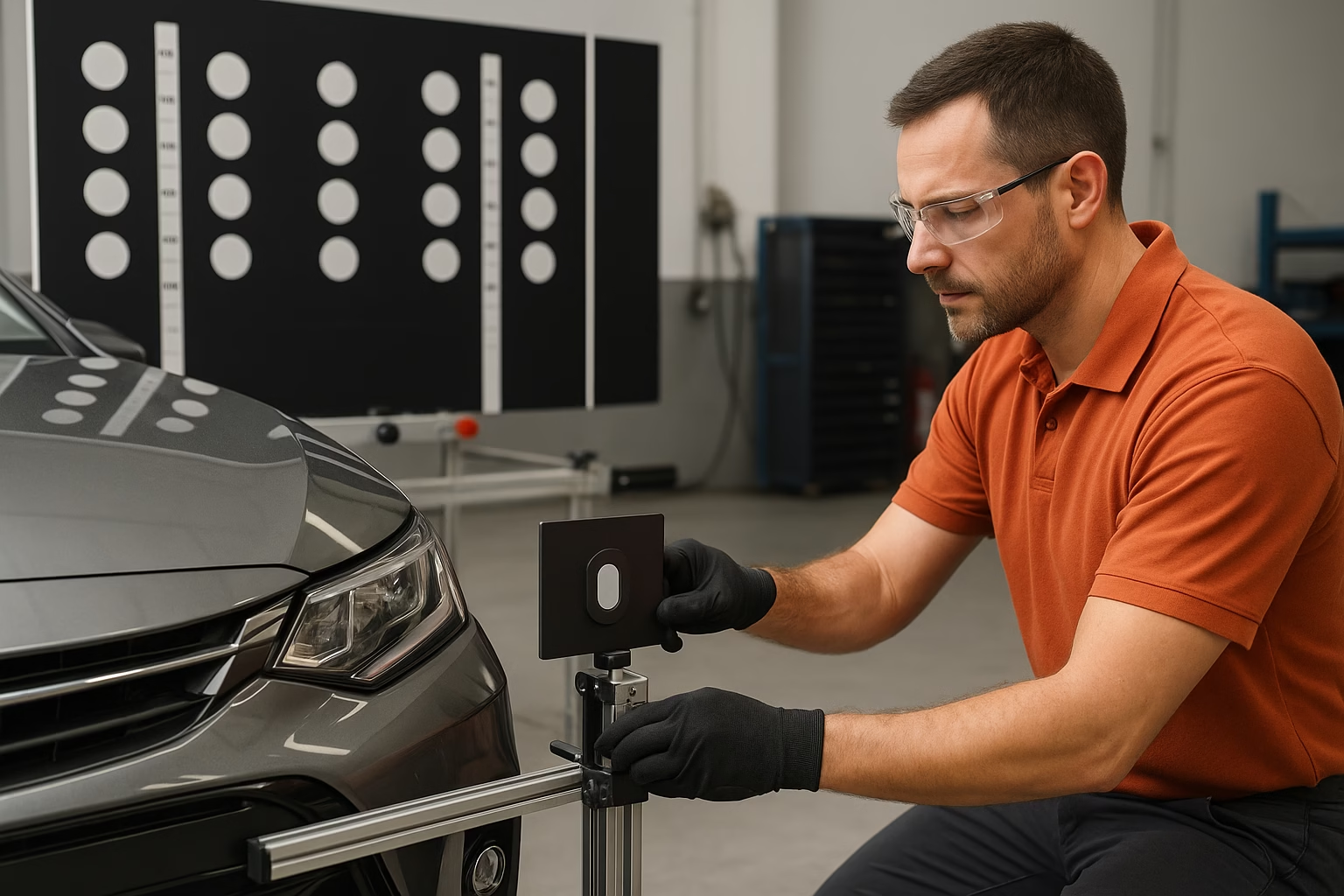Minor accidents can cause major problems in modern cars, especially when it comes to ADAS. That tiny bumper tap or harmless-looking windscreen chip might have knocked a radar or camera out of alignment.
If your car has safety features like AEB, Lane Assist, or Adaptive Cruise, here is what to check after any front or rear repair.
Why ADAS Can Be Affected
Advanced Driver Assistance Systems rely on precise sensor alignment. A radar behind the bumper or a camera behind the windscreen must be positioned exactly right to function properly.
Even a few millimetres of shift or tilt can throw off:
- Emergency braking timing
- Lane positioning
- Cruise control distance
- Blind spot alerts
After a Windscreen Replacement
If your car has a front-facing camera (usually mounted near the rearview mirror), replacing the windscreen can cause misalignment. The camera’s view of the road must be calibrated to match the car’s geometry.
Check if your car needs calibration if:
- The windscreen was replaced or removed
- A camera was replaced
- You see a warning icon related to Lane Assist or AEB
Not all windscreen shops calibrate cameras. It is a good idea to ask before booking.
After a Bumper Repair or Replacement
Front and rear bumpers often hide radar sensors. If these are bumped, moved, or replaced, even slightly, the radar may point in the wrong direction.
This can affect features such as:
- Adaptive Cruise Control
- Autonomous Emergency Braking
- Rear Cross Traffic Alert
- Blind Spot Monitoring
Watch for unusual warnings, false alerts, or loss of functionality after body repairs.
Common Signs of Misalignment
Here are some clues that an ADAS feature may need attention:
- Lane Assist or cruise control stops working
- Warnings appear more often than usual
- Car brakes for no reason
- Blind spot system seems delayed or off
- AEB or camera-related icons on the dash stay on
What to Do Next
If you suspect something is not quite right:
- Clean the radar and camera areas first
- Check your manual for calibration guidelines
- Ask your repairer if a scan or calibration was performed
- Visit a specialist if unsure. A quick diagnostic scan can confirm sensor status
Most importantly, never assume a system is working just because there is no warning light. Some errors will not trigger alerts until they cause a real problem.
Final Tip
Bumpers and windscreens are not just cosmetic anymore. If your car has driver assist tech, treat these repairs with the same care you would give to an engine or brake repair.
When in doubt, get it scanned. A small calibration now could prevent a much bigger issue later.
For more plain‑English guides and FAQs, explore our Driver’s Lounge.

Hiran Alwis is an automotive lecturer and ADAS specialist with over 15 years of experience in diagnostics, advanced safety systems, and technical training. He founded ADAS Project to help everyday drivers and workshop technicians understand and safely use advanced driver assistance systems.
